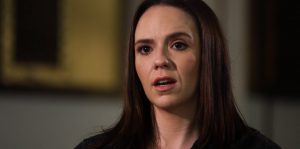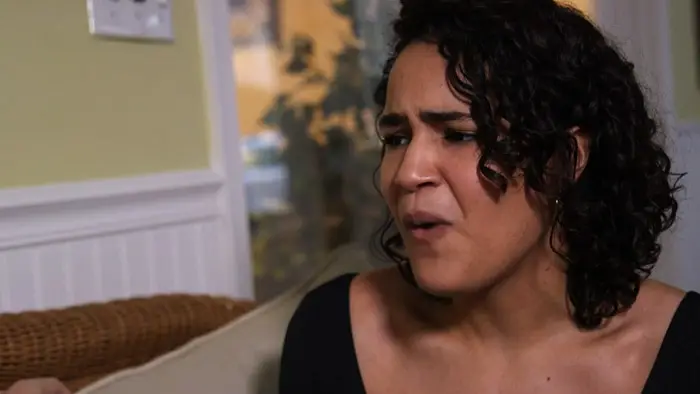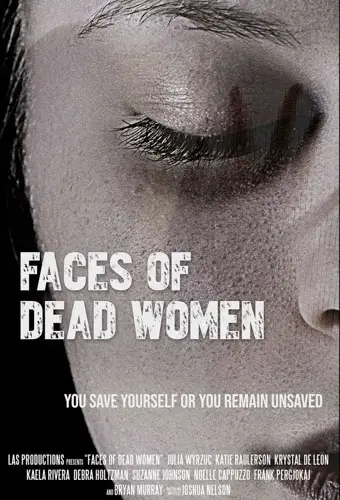
Faces of Dead Women opens at the start of a support group session for sexual assault and rape survivors. The short film takes on rape from many different perspectives as participants tell their stories unshakable effects of sexual assault.
One by one, members of the support group share their experiences and feelings—feelings of never waking up from the nightmare, the permanent memories of the traumatic events, or the primary feeling of anger and sadness. Finally, a couple in love shares their troubles with intimacy. It’s all done in a setting of safety and support.

“…at the start of a support group session for sexual assault and rape survivors.”
Writer/director Joshua Nelson pulls together several perspectives from the actual assault, the long-lasting effects afterward, and the injustice of rape being the only crime in which “the victim becomes the accused.”
Then in a separate session, the group’s therapist is having a one-on-one session with a rapist, leading to an ethical and moral dilemma in the end. This controversial ending felt like a wrong turn to me. I understand and applaud the point the ending was trying to make. It’s not that the ending should not have been there, but I felt like its execution stepped just outside the realm of dramatic reality in making its point about revenge.
Faces of Dead Women packs a lot of intensity and emotion into forty minutes. It creates empathy and perspective for those who have been sexually assaulted and for friends and loved ones.

"…creates empathy and perspective..."
